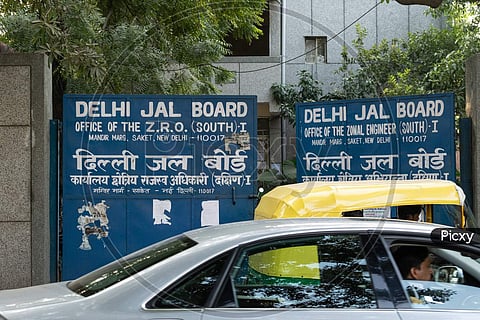Delhi Jal Board Implements SC Order: Raises Sewer Death Compensation to 30 Lakhs After Two-Month Lag
New Delhi - The Delhi Jal Board, after a two-month delay, has finally complied with the directives of the Supreme Court. In a statement released last Wednesday, the Board increased the compensation for deaths in sewers from Rs 10 lakh to Rs 30 lakh. This move follows the Supreme Court's order issued in the third week of October.
The Supreme Court had, in a landmark decision last October 20, addressed the issue of deaths occurring during manual scavenging, emphasizing the need for substantial compensation. The court mandated that families of those who lose their lives while cleaning sewers should receive compensation of Rs 30 lakh. Additionally, a minimum compensation of Rs 20 lakh was specified for those who suffer permanent disability during such operations.
In its order, the Supreme Court directed both the Central Government and State Governments to take decisive steps to eradicate manual scavenging entirely. The court emphasized that compensation of Rs 10 lakh should be provided if an employee suffers any other disability during the cleaning process.
Furthermore, the Supreme Court issued instructions to government agencies, urging coordination to prevent such incidents and prohibiting interference by the High Court in monitoring sewer-related death cases.
The perilous nature of manual scavenging was highlighted in the court's order, noting that workers often enter sewers without safety equipment, masks, or protective clothing, leading to tragic outcomes. Despite persistent demands to halt this hazardous practice, manual scavenging continues in various parts of India.
As per government data provided in response to a Lok Sabha query, 339 cases of deaths occurred during sewer and septic tank cleaning across the country in the last five years. Maharashtra recorded the highest number of deaths, with 54 fatalities, followed by Uttar Pradesh with 46 deaths.
The government attributes these deaths to the dangerous methods employed in sewer cleaning, coupled with the failure to adhere to safety regulations. The release of poisonous gases during the cleaning process poses a significant risk to the lives of workers.
While legislation banning manual scavenging was enacted in 2013, the practice persists in India. The recent move by the Delhi Jal Board to implement the Supreme Court's compensation guidelines is seen as a step towards addressing the longstanding issue of unsafe and inhumane sewer cleaning practices.
Also Read-
You can also join our WhatsApp group to get premium and selected news of The Mooknayak on WhatsApp. Click here to join the WhatsApp group.

